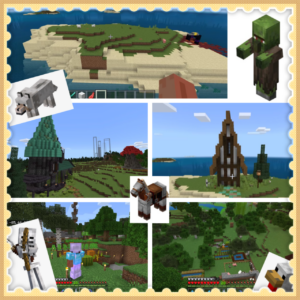Two weeks of “Teacher School” after Two Years of Teaching
Sara McManus
School of Education, University of Northern British Columbia
EDUC 393: Foundations of Education
Melanie Baerg, M. Ed. – Lecturer
September 24, 2021
My unplanned return to university at the age of fourty-three has already been an eye-opening experience! I have been teaching for the past two years as a non-certified teacher on letters of permission at the alternate high school. Last spring, the students began to pout and ask why I “had to go to teacher school?” I can see in their faces that my return for their first two weeks this year has brought them relief. To those students, I am qualified, just as much as any other teacher they have ever known. They do not understand why I needed to become certified. However, they are still my cheerleaders. For myself, my guilt about leaving them is relieved with every passing moment as a Teacher Candidate. I am already able to recognize that my knowledge base and skills are growing exponentially. During this first two-week period, a few concepts have started to resonate with me on a deeper level. The first stemmed from a discussion in EDUC 393 regarding teachers sharing their social media with students; the second from a simple sentence near the beginning of the Changing Educational Paradigms video by Sir Ken Robinson; and the third from our class lecture and quick write on educational philosophies. In reflection on these three thought-provoking classroom experiences, I have already started to think about how I could have done things differently in the past and what I can do better in the future.
During our Foundations of Education lecture on September 13, 2021, Instructor Melanie Baerg noted that her policy was not to add students to her social media accounts until after their graduation. I immediately thought to myself: I wonder if I would ever be convinced to do the same? I had not hesitated to accept the first student who added me to their Snap Chat. At that time, I was still earning trust in the school, and my student was asking for a connection. By the time Covid hit, I was the only teacher who could track down missing students, as they would not respond to phone calls. Still, I could reach them through their social media accounts within a matter of minutes. Coincidentally, this movement of a new generation who responds better to text messages due to increased anxiety was discussed in our September 20, 2021, EDUC 393 lecture on the Professional Standards for BC Educators. During this class, the second standard regarding how Educators need to “act ethically and maintain the integrity, credibility, and reputation of the profession” prompted me to reflect even more on my social media content and connection with students. I honestly do feel comfortable sharing my life with my students. It is one of my vehicles of connection, and I am confident that I will continue to do so for several reasons. However, thinking about my future as an Elementary Educator, I could easily develop a personal policy for younger students, not because they may see something inappropriate on my social media accounts, but because of why they would be asking. I think that if a primary or intermediate student is trying to make a connection with me outside of school there might be a reason; and therefore, it wouldn’t be a bad idea to keep a closer eye and build a stronger connection in school.
Before entering the world of education as a Teacher Teaching on Call, I had various positions in many industries. One of my largest challenges in the past two years has been getting used to the word “no.” I have never encountered so many people that move at a snail’s pace, don’t reply to emails, and say, “that’s not my job.” I have needed to remind myself to bite my tongue and that I am a newcomer to this world almost daily. When our EDUC 393 class watched Sir Ken Robinson’s Changing Educational Paradigms, and he said, “…the problem is they’re trying to meet the future by doing what they did in the past,” I thought – that’s it! They can’t say yes because they are stuck in the past. The past is easier. They have already learned from yesterday’s mistakes. Changing something that is functioning, albeit not always efficiently, is better than reinventing the wheel. I feel very critical and harsh writing about these feelings because I love the team, I have worked with over the past two years, but it is genuinely how I feel. I hope that I will be able to work with forward, open-minded peers who are willing to listen to new ideas in the future. In the meantime, I also hope to learn more about why things are the way they are to understand better the ridged positions I have encountered.
The reading, lecture, and activity on Educational Philosophies on September 20, 2021, allowed me to reflect on my philosophies and styles briefly. Regarding the Ontological Frameworks of Philosophy, I found myself stuck between what I consider old and new, perhaps a blend of Realism with Existentialism. In the online text of Foundations of Education Chapter 5.2, I was drawn to the closing Realism sentence, “Students demonstrate content mastery of these skills through critical observation and applied experiments,” and the Existentialist statement, “Existentialists have difficulty positioning students as objects to be measured, tracked, or standardized” (SUNY Oneonta Education Department., n.d.). I believe that people need to practice to master, but I also think that testing places students in unrealistic situations to measure their learning accurately.
From Chapter 5.3, I discovered that I could see a blend of my teaching style in Essentialism, Perennialism, and Progressivism. I have most certainly led many teacher-centered lessons and classes in a lecture style. I believe that they are effective in some situations, with some learners. However, I am aware that there is likely a student or two+ in my class who does not appreciate lectures. I try to connect with them wherever possible. (This happens regularly in my scout group!) I wholeheartedly agree that students need to be well-rounded in their subject areas and should experience a wide variety of different education throughout their lifetime. I also agree that student-centered activities are necessary; even more so, I practice youth-led leadership through democracy and often have classes choose the direction of units or lessons. I believe that their interest in what they are learning is crucial.
All-in-all it has been a hectic yet amazing two weeks for me. I have learned so much already. I chose the word “eager” in our first introduction, and I would say I am still eager for the adventure ahead. If I could change only one thing, it would be that we have at least a bit of the weekend to work on these reflective writing assignments. Friday night deadlines are extremely tough, with my scout’s meeting on that night. The weekends are going to be the time where I can focus on my learning. I found the process of trying to squeeze in my reflection in the short hour and a half between work and class and then staying up late writing a heavy task. It was not unmanageable, just significant. I’m confident I will figure out a new balance soon. We are constantly adjusting to something new; some things are just bigger than others.
References
Baerg, M. (2021, 09 13). EDUC 393 – Foundations of Education. Syllabus Overview (Lecture). South-Central Campus, Quesnel, BC, Canada: University of Northern British Columbia, School of Education.
Baerg, M. (2021, 09 20). EDUC 393 – Foundations of Education. Educational Philosophy (Lecture). South-Central Campus, Quesnel, BC, Canada: University of Northern British Columbia, School of Education.
Robinson, S. K. (2010, 10). Changing Education Paradigms. (Video). TED. Retrieved from https://www.ted.com/talks/sir_ken_robinson_changing_education_paradigms
SUNY Oneonta Education Department. (n.d.). Foundations of Educations Chapter 5.2 Ontological Framewords of Philosophy. Retrieved 09 18, 2021, from Lumen Learning: https://courses.lumenlearning.com/suny-oneonta-education106/chapter/5-2-ontological-framewords-of-philosophy/
SUNY Oneonta Education Department. (n.d.). Foundations of Educations Chapter 5.3 Philosophical Perspective of Education. Retrieved 09 18, 2021, from Lumen Learning: https://courses.lumenlearning.com/suny-oneonta-education106/chapter/5-3-philosophical-perspectives-of-education/

